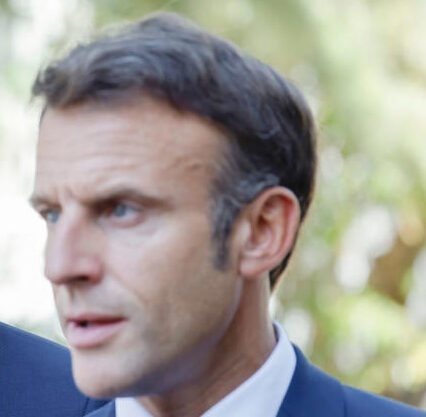Title: “French Protests Against Immigration Law: What’s at Stake?”

Let’s break it down. According to the Interior Ministry, a whopping 75,000 people participated in the protests nationwide, with 16,000 of them marching through the streets of Paris. However, the hard-left CGT union believes the numbers were even higher, estimating a total of 150,000 protesters across the country.
Why are people so upset? Well, it all boils down to a new immigration law that was passed in December. This law aims to give France more power to deport individuals considered undesirable and introduces stricter measures for foreigners seeking social welfare, among other things.
The timing of these protests is crucial, happening just four days before the Constitutional Council is set to decide whether the law aligns with the French Constitution. This adds a sense of urgency and importance to the demonstrations.
The bill, which Macron backed as it made its way through parliament, has sparked a unique twist. The President has expressed concerns about some parts of the law possibly being unconstitutional. This unusual stance from Macron has added a layer of complexity to the situation, as it seems even he is not entirely comfortable with all aspects of the legislation.
The protest itself was organized by a diverse group of figures from various sectors, including the arts and unions. They argue that the law was written under the influence of what they call the “merchants of hate,” individuals who dream of imposing a concept known as ‘national preference’ on France. Essentially, ‘national preference’ is the idea that French citizens should have priority over foreigners in benefiting from the country’s resources.
This concept has long been associated with the far-right National Rally party, making it a contentious issue for many protesters who fear that the law might lean too much towards far-right ideals.
One of the concerns raised by the protesters is how the law could make it more difficult for family members to reunite in France. For example, an applicant wanting to join their spouse would now have to demonstrate knowledge of the French language. Critics argue that such requirements could create unnecessary barriers for families hoping to be together.
Additionally, the Constitutional Council is expected to scrutinize other aspects of the law, such as stricter standards for receiving social services and housing. There’s also a resurrection of a law from 2012, which makes it illegal for a foreigner to be in France without proper residence papers. These elements are causing many to question whether the law aligns with the principles of inclusion and fairness.
What’s driving Macron’s support for this law? Some observers suggest that this move aligns with Macron’s recent efforts to shift the government’s stance towards the right, especially in light of the upcoming European elections. With far-right parties gaining popularity across Europe, Macron may be strategically positioning himself to appeal to right-leaning voters.
Looking ahead, the Constitutional Council’s decision on the law’s constitutionality will have a significant impact on the future of immigration policies in France. If certain articles are deemed unconstitutional, it could prompt a reevaluation of the law’s provisions.
Moreover, the political landscape adds an interesting twist. The far-right National Rally, led by Marine Le Pen, could potentially secure a victory in the 2027 presidential elections. As Macron will not be running for a third term after serving two mandates, the political dynamics in France are evolving, making the outcome of these protests and the subsequent decisions even more critical.
In conclusion, the French protests against the immigration law highlight a complex and nuanced debate about national values, inclusivity, and the potential impact of legislative decisions on the lives of individuals and families. The coming days will reveal the Constitutional Council’s verdict and shed light on the direction France might take regarding immigration policies.
